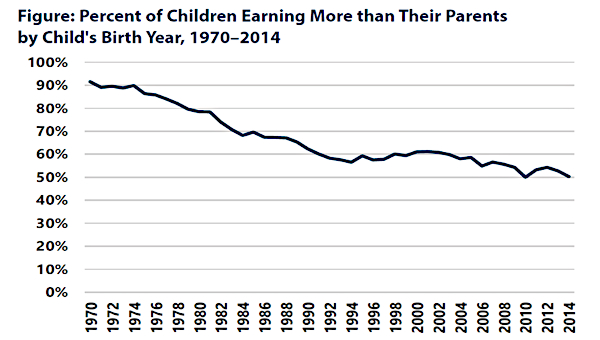Impoverishing Europe
The crisis is not relinquishing its grip on Europe. From autumn 2008 to early 2009 the world market experienced the deepest slump in economic output since the Second World War. This is a global crisis. Even in emerging economies like China, Brazil or India economic growth declined and could not compensate for the recession in the North Atlantic region. For the first time since the worldwide economic crisis of the 1930s global economic output has shrunk. After a brief uptick in 2010 which barely restored the level of reproduction prior to the crisis, in 2011 growth was again in worldwide decline. In the last quarter of 2011 economic output in the EU shrunk by 0.3 per cent. In the first months of 2012 industrial production in the large EU nations of France, Italy and Spain contracted further.

From early 2010 the crisis in Europe has emerged as being one of state refinancing. In every crisis fiscal revenues take a hit while unemployment, and with it, social expenditures increase. To this is added the gigantic bank rescue packages and – in comparison to these the admittedly less substantial – stimulus packages. All this has resulted in large increases in budget deficits and state debt. A number of countries, starting with Greece, have reached the limits of their borrowing capacity. Because international investors have lost confidence that these countries can any longer service their debt, they are not able to obtain any new credit from the capital markets, or if so only at an intolerably high rate of interest. Some investors are also betting with credit default swaps on the bankruptcy of individual countries – a self-fulfilling prophecy.
The Neoliberal ‘Competition State’
Before the current crisis, and when considered separately from debt service, countries such as Spain, Italy and Ireland exhibited a positive primary balance in their public budgets. That is to say, state revenues exceeded expenditures. In these cases the particular problems regarding finances clearly developed only with the onset of the latest crisis. In other countries such as Greece and Portugal the primary balances of state budgets were indeed negative before the current crisis, which indicates structural problems with state financing. That the state, as for example in Greece, tolerated large-scale tax evasion must be understood as an element of a specific mode of capitalist development and a particular constellation of class interests. Phenomena such as high inflation, clientelism, corruption and tax evasion are characteristics of states that occupy a more peripheral position in the international division of labour. These states exhibit a high degree of internal structural heterogeneity in forms of production and class relations in which the distribution of the value of the social product is fiercely contested between different classes and class fractions.
Furthermore, neoliberal fiscal policies have repeatedly created budget shortfalls, even before the current crisis. This is also the case for Germany. Due to the reduction in the top tax rate on high incomes and in the inheritance tax, the elimination of the wealth tax and the stock transfer tax, a tax exemption on the sale of subsidiaries of joint stock companies, and other measures, reductions in tax receipts have come to be accepted. The capitalist state has developed into a ‘competition state.’ Competing internationally for investment, it seeks to attract and bind businesses to locations within its jurisdiction, by means of selective reductions in taxes for firms and investors, as well as with subsidies. The wide mass of wage earners in contrast, had to endure increases in taxation and simultaneous reductions in social welfare benefits. The state has thus contributed to a redistribution of wealth from wage earners to the owners of capital.
Alongside the crisis of state indebtedness the banking crisis has also returned. Since government bonds are an important source of profits for banks and other owners of capital, the financial crisis also strikes back at financial institutions. Because state bankruptcies in Greece and elsewhere threaten European banks with collapse, financial houses hesitate to extend credit to one another. Already in 2007/08, as a result of the collapse of the subprime mortgage market in the United States, the so-called interbank loan market dried out. Banks now prefer to park their money with the European Central Bank (ECB) rather than to make it available to their peers. As in the autumn of 2008, this credit crunch also impacts upon the circuit of industrial capital.
Uneven Development
The global dynamics of the crisis are superimposed on the contradictions of European integration, which in turn further intensify them. The unequal development of capital accumulation in the Eurozone became starkly evident in the crisis. Germany and a few other countries achieved large current account surpluses and are simultaneously capital exporters (creditors). In contrast most Eurozone countries are capital importers (debtors) and have current account deficits. The balance of payments imbalances in Europe increased substantially in recent years. In the critical discussions taking place regarding this relationship several explanations are on offer.
First, increasing international indebtedness is linked to the hierarchical structures of the international division of labour and the uneven development of productive capacities. Germany, for example, is equipped with a greatly diversified industrial structure, particularly in the production of means of production (machine tools, chemicals, etc.). Countries such as Greece in contrast have much less to offer to the world market. This unequal development has always been an immanent characteristic of the capitalist world economy. The further the productive force of labour progresses, that is, the more commodities that can be produced with the same deployment of labour, the more the concentration and centralization of capital develops, and the more the tendential geographic concentration of production also takes place.
Secondly, uneven development is related to diverging unit labour costs. The relation between wages and productivity that is expressed in unit labour costs is crucial for the price competitiveness and profitability of capital. It should be noted that in no other EU country have unit labour costs increased as little in the past ten years as in Germany. German companies have procured competitive advantages for themselves through wage restraint. The actuality of German export surpluses means of course that Germany must also play the part of international creditor in order to be able to sell its commodities abroad. Conversely, countries with current account deficits such as Greece, Portugal, Spain, Italy, France etc., must logically take on debt to be able to pay for their excess imports.
The third explanation for uneven development in the EU seems to contradict the second, and is based on the observation that rates of growth in the peripheral EU nations were previously higher than in Germany. The higher rates of growth and the capital imports of the peripheral nations are not indications of an absent competitiveness. On the contrary, from a Marxist perspective, capital flows as a rule to where profit rates are higher. It may indeed be the case that in the last decade unit labour costs increased much more in Greece than in Germany. But the question to pose is: based on what level? Wage levels in any case are much lower in Greece than in Germany.
The differing rates of growth are also correlated to the diverging real rates of interest in the Eurozone, which result from the difference in the nominal interest rate and the inflation rate. Through the ECB a uniform nominal base rate is prescribed, yet in light of different rates of price increases from country to country, this leads to divergent real interest rates. Because the rate of inflation is higher in Greece than in Germany, the corresponding real rates of interest are lower there. This being the case, it is thus attractive for investors to take on debt there. From this perspective the causality in the balance of payments is exactly the reverse of that in the first explanation: It is not the surplus commodity exports of Germany that have led to the accumulation of debt in the periphery, rather the export of capital from the imperialist centres has led to the higher rate of growth and the increase in commodity imports in the peripheral countries. In the first case the trade balance (current account) determines the capital account; in the second case this is reversed.
Does merchandise trade dominate over capital movements, or vice versa, do capital flows dominate the trade in goods? In my view the question of causality in the balance of payments cannot be answered in general but only through more concrete analysis on a case-by-case basis.
Regardless of how one interprets the causality in the relationship between commodity and capital flows, there is agreement that the problems in the Eurozone cannot be reduced to the financial crises of states. Not only has the indebtedness of the respective states in the Eurozone greatly increased, but so too has private debt. It would be mistaken in each case to comprehend the financial crisis of the state in isolation from developments in the economy as a whole.
Intensified Competition
The common currency is in any case intensifying competition and the problem of uneven development within the Eurozone. Countries with slipping competitiveness in the Eurozone cannot use their own monetary policy, the devaluation of their own currency for example, to defend their competitiveness. Pressure to adjust bears down above all on countries in the position of net debtors, that is, countries with a current account deficit and a capital import surplus. This pressure to adapt leads ultimately to wage reductions as is currently being implemented in an intensified form in Greece and Portugal by the austerity policies of the troika of the European Commission, the ECB and the International Monetary Fund (IMF).
The rigidity of the German government with regard to the management of the European crisis appears at first sight to contradict certain material interests of capital. It is not only Anglo-American investors who have long demanded that the ECB should purchase government bonds without limit in order to reduce interest rates for the EU countries affected by the refinancing crisis and restore confidence in their state securities. There has also been a demand in other European states for a more flexible position on the part of the ECB, and for the introduction of euro bonds. At the same time it is obvious that the brutal austerity policies that have been forced on Greece and other states in response to the economic turbulence by the German government only push these countries even deeper into crisis. Hence it needs to be asked whether the prevailing crisis policies are themselves irrational from the perspective of the reproduction of capital.
The austerity measures and the demands for monetary state financing or the supranational socialization of debt appear at first to contradict each other. While austerity policies appear to have the reduction of state indebtedness as their aim, an expansion of the role of the ECB as lender of last resort for the states of the Eurozone or a socialization of their debt by means of euro bonds would create the preconditions for an even greater expansion of state debt. However, there exists only a superficial contradiction between these measures. In the end, policies of cutbacks will also not lead to a reduction of state indebtedness, but at best will create the preconditions for the reestablishment of confidence for investors in European government bonds. Even the IMF expects that average indebtedness in the Eurozone, which in 2010 was at 85.8 per cent of GDP, will be at 86.6 per cent in 2016. Austerity policies, as well as the much-discussed socialization of debt, serve to prevent an even greater devaluation of fictitious capital, which is what government bonds embody. What is of concern here is not the reduction of state debt but rather its sustainability. As a sphere of investment, government debt, which has been growing faster globally in recent years than the global social product, is indispensable for global financial firms.
Intensification of Exploitation
Yet, if austerity policies and the socialization of debt, and monetary state financing by the ECB, respectively, are just different ways to restore confidence in European government bonds and guarantee a ‘sustainable’ debt, why then are the governments of the Eurozone states not taking the more comfortable path and relaxing austerity measures and concentrating on the socialization of debt? Certainly, without austerity policies state indebtedness would grow even quicker. But why would that be so problematic? Italy maintained levels of state indebtedness for decades in excess of 100 per cent of GDP. Why did it suddenly become a problem? Even the USA could afford a debt-to-GDP ratio of more than 100 per cent, and Japan of even more than 200 per cent. What explains the rigidity of German and European austerity policies?
Their goal is not only to reduce state expenditures or to increase tax revenue. It is also a matter of reducing wage levels in the private sector and of increasing working hours, in short, of increasing the overall exploitation of labour. Austerity policies don’t resolve the crisis but they help to realise traditional demands of capitalists that up to now had not been achievable due to the relation of forces. Austerity measures serve not only the bank rescues (which could also be carried out by the ECB buying out the banks’ government bonds), but serve above all industrial capital, in particular export-oriented industrial capital, whose profitability can be increased in this way.
To add to this: It is not just about defending the euro but, above all, its international role. The common currency functions not only as a means of circulation and payment within the Eurozone, but also has a global function, even if as an international reserve currency it takes second place behind the American dollar. The importance and prominence of the euro would be endangered if international investors lost confidence in the government bonds of Eurozone countries and withdrew their capital. The euro would hence lose value against the currencies of other capitalist centres. It is precisely in the competition between currencies that the stability of the euro, as a measure of value, and as a means of circulation and payment, as well as a medium of accumulation, is of importance. Internationally active banks and transnational corporations, which are based in the Eurozone, profit in particular when they can offer credit in their own currency and when their business partners can pay in euros. This reduces their currency risks.
In this regard it is of interest to these banks and corporations the extent to which actors outside of the Eurozone are prepared to use the euro as a currency. This becomes of even greater importance the more financial linkages with actors outside of the Eurozone increase. For Germany, exports to nations outside of the Eurozone in recent years increased faster than exports to those within the Eurozone. The defence of the euro through policies of austerity is not simply the result of the European strategies of German capital but above all of its globalization strategies. Nevertheless, the German government does not play the role of Europe’s disciplinarian solely in the interests of German capital but also in the interests of dominant fractions of capital in other Eurozone countries. Only this convergence of interests can explain why Sarkozy largely swung into line behind Merkel and why the Greek governments under no circumstances considered exiting the Eurozone although austerity policies were and are wrecking the internal market, and are damaging the fraction of capital dependent on this market.
Resistance
In the coming months several countries must refinance huge portions of their state debts that are coming due. That is, they must replace them with new loans. It remains to be seen to what extent this will be possible with sustainable interest rates. Currently under discussion is whether the ‘rescue packages’ which have covered the EU countries with the temporary European Financial Stability Facility (EFSF) and more permanently with the European Stability Mechanism (ESM) are sufficient, if the refinancing of larger countries like Italy and Spain through capital markets will no longer be possible. A further expansion of the mutual liability for the public debt of individual nations will confront yet greater political resistance than we have until now experienced. When this happens the forces demanding the exit of individual countries from the Eurozone, or the Eurozone’s bifurcation, will further gain in prominence.
In this situation the Left must mount a two-front struggle. One the one front, it must organize the defence of the working and popular classes against the ruling classes’ policies of immiseration, and fight against the fiscal pact which is leading to a further intensification of the neoliberal orientation of European financial and economic policies and a further hollowing out of democracy. One the other, it must combat the nationalist, racist, and fascist forces opposing European integration. The Left must make clear that a different, democratic and solidaristic Europe is possible and necessary. The protest actions involving a broad section of participants and allies, set to take place in Frankfurt on 16 to 19th of May, offer the opportunity to articulate just such a position. (See: Bullet No. 634 and blockupy.frankfurt.org.) •
This article originally appeared in Junge Welt, 5 May 2012. Translation by Sam Putinja.





